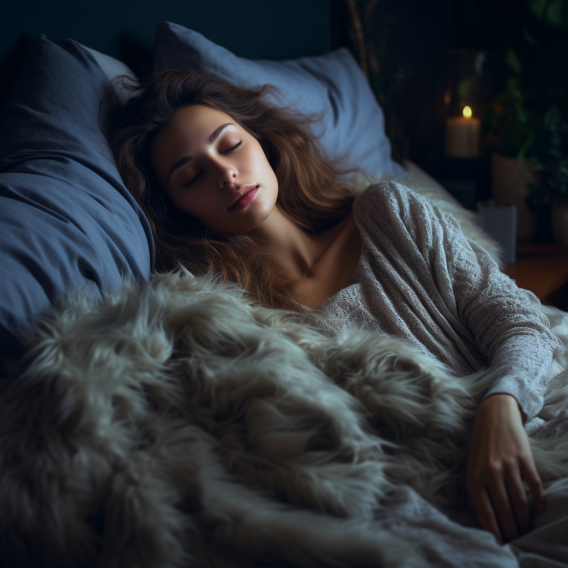In the hustle and bustle of modern life, the interplay between stress and sleep has become a significant challenge for many. As stress levels soar, the quality of sleep often diminishes, creating a cycle that can negatively impact both physical and mental well-being. This comprehensive guide explores the intricate relationship between sleep and stress, offering a deep dive into effective strategies to unwind, relax, and pave the way for a more profound and rejuvenating slumber.
Understanding the Stress-Sleep Connection
1.1 The Bidirectional Relationship
The relationship between stress and sleep is bidirectional. Stress can disrupt sleep, and lack of sleep can contribute to heightened stress levels. Delve into the science behind this connection, understanding how stress hormones affect sleep architecture and vice versa.
1.2 The Impact of Chronic Stress
Explore the long-term consequences of chronic stress on sleep quality. From insomnia to sleep disorders, chronic stress can have lasting effects on the ability to achieve restorative sleep. Uncover the physiological and psychological mechanisms at play.
Strategies for Stress Reduction
2.1 Mindfulness Meditation
Embark on a journey into mindfulness meditation as a powerful tool to alleviate stress. Learn about different meditation techniques, mindfulness apps, and how consistent practice can positively impact sleep quality.
2.2 Yoga for Relaxation
Discover the soothing effects of yoga on both the body and mind. Explore yoga poses, breathing exercises, and guided relaxation techniques designed to release tension and promote a sense of calmness before bedtime.
2.3 The Role of Exercise
Dive into the relationship between physical activity and stress reduction. Understand how regular exercise can act as a natural stress reliever, promoting the release of endorphins and creating an optimal environment for restful sleep.
Creating a Sleep-Inducing Environment
3.1 The Importance of Sleep Hygiene
Explore the principles of good sleep hygiene and how they contribute to stress reduction. From maintaining a consistent sleep schedule to creating a comfortable sleep environment, these practices set the stage for quality rest.
3.2 Creating a Tranquil Bedroom Sanctuary
Delve into the art of transforming your bedroom into a tranquil sanctuary conducive to relaxation. Explore soothing colors, comfortable bedding, and the role of ambient lighting in promoting a serene atmosphere.
3.3 Digital Detox Before Bed
Unplug and unwind by implementing a digital detox before bedtime. Understand the impact of screen time on stress levels and sleep quality, and explore alternative activities to wind down without electronic devices.
Nutrition and Sleep
4.1 The Connection Between Diet and Stress
Examine the relationship between diet and stress levels. Discover how certain foods can either contribute to or alleviate stress, and explore dietary choices that support a more peaceful sleep.
4.2 Bedtime Snacks for Relaxation
Explore bedtime snack options that promote relaxation and better sleep. From herbal teas to sleep-inducing snacks, discover the role of nutrition in creating a bedtime routine that supports stress reduction.
Cognitive Behavioral Therapy for Insomnia (CBT-I)
5.1 Addressing Sleep Distortions
Understand how cognitive-behavioral therapy for insomnia (CBT-I) can be a valuable tool in managing stress-related sleep disturbances. Explore the principles of CBT-I and how it addresses thought patterns and behaviors affecting sleep.
5.2 Sleep Restriction and Stimulus Control
Delve into specific components of CBT-I, including sleep restriction and stimulus control. Understand how these techniques can be applied to regulate sleep patterns and improve overall sleep quality.
Conclusion: A Holistic Approach to Sleep and Stress
Summarize the key takeaways from the guide, emphasizing the importance of a holistic approach to managing stress for better sleep. Encourage readers to experiment with different strategies, create a personalized routine, and seek professional guidance if needed.

